Dental Implants
Dental Implants is the most modern, leading edge technology in high end dentistry that can replace any or all of your missing teeth. An implant is essentially a post that is surgically placed in the jaw. It is made of biocompatible material i.e. titanium. Prosthesis is then attached to the post. Shalby Hospital Provides the Best Dental Implants Surgery and Treatment in India.
Dental implants are designed to provide a foundation for replacement teeth, making them look, feel, and function like natural teeth. Further, they offer the ability to indulge in any delicacy and wearing a smile of confidence.
India’s best dental Implant clinic, Shalby Hospitals offers the facility of Dental CT Scan, allowing the dentist to plan the details of the implant treatment with unparalleled accuracy.
Implant Supported Denture:
- For better retention of the denture, the patient should have enough underlying bone support.
- In many cases, the underlying bone support is not strong. Hence the denture does not have retention or stability. These cases can be treated through implantation.
- 2-4 implants are placed in a jaw which clips into rings placed on the tissue surface of the denture. (Clip-in, clip-out). So the denture is fully stabilized and does not rock or lift upwards while eating or drinking.
This gives tremendous comfort and confidence to the patients.
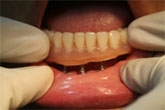
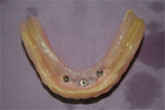
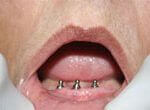
Full mouth Implants:
If the underlying bone support is adequate and the patient prefers full mouth fixed dentition (patient doesn’t want to wear removable dentures), they can opt for full mouth multiple implants.
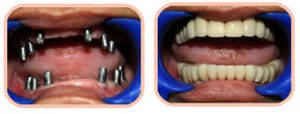
Before After
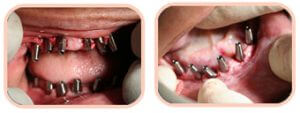
Before After
Why Would You Need a Dental Implant?
Many people require dental implants for replacing their teeth that have been removed for different reasons – either broken in an accident or rotted away. So, instead of investing in a removable denture, permanent dental implants are an ideal option for patients who need a permanent solution to the teeth replacement, as dental implants are supported by jaw bone for better strength and durability.
Dental Implants Can be Partial or Full, Depending on Your Requirements.
Full mouth dental Implants:
If a patient’s underlying bone support is strong, and more than three teeth need to be replaced, then full mouth implant is recommended.
Partial dental implant: Partial implant is suitable for a patient with only one injured or broken tooth needs replacement.
Many people choose dental implants because they don’t want to wear removable dentures or wish to improve their appearance permanently.
Do Implants Hurt?
The dental implant is done through a surgical procedure. Since everyone’s tolerance level to pain is different, one individual may feel only mild discomfort, and another person may feel more pain after the surgery. However, during the surgical procedure, one will be under the effect of local anesthesia, so the patient will not feel discomfort or pain at all.
After the surgery, an individual may experience numbness around the mouth and slight pain. However, pain-relieving medications are given to patients to suppress the pain. After an interval of a day or so, one may not require such medicines to relieve pain.
How do Dental Implants Work?
Types of kidney stones:
Dental implants are metal frames or posts that are fused to the jawbone underneath the gums. They are used to give stable support to the patient’s artificial teeth. The bridges or dentures mounted onto the implants will not shift or slip and hence, are useful while speaking and eating. Due to the secure fit, the bridges or dentures fitted over the implants feel more natural, compared to conventional dentures or bridges.
Some people are not comfortable with conventional dentures and bridges due to gagging, poor ridges, or sore spots. Moreover, traditional bridges are attached on either side of the gap left by a missing tooth. But the advantage of dental implants is that they don’t require adjacent teeth to be prepared for holding the new tooth replacement in place.
However, to receive dental implants, one must have healthy gums and adequate bone structure for supporting it. Furthermore, maintaining good oral hygiene and visiting the dentist frequently can prolong the life of one’s dental implants.
The Two Most Common Types of Implants That are Considered Safe by Dental Specialists:
Endosteal implants: These dental implants are fixed surgically into the jawbone. After the surrounding gum heals completely, another surgery is required for connecting a post to the actual implant. The final step is the attachment of an artificial tooth (or teeth) to the post/s – individually or together as a grouped denture or bridge.
Subperiosteal implants: These dental implants consist of a metal frame, which is fixed onto the jawbone underneath the gum tissue. Once the gums heal properly, the frame is fixed to the jawbone just below the gum tissue. After that, posts attached to the frame protrude through the gums. Finally, the artificial teeth are fixed to the posts.
What happens Before, During, and After Dental Implant Surgery?
Before Dental Implant Surgery
Depending on the condition of an infected or damaged tooth, a dental specialist suggests an individual to undergo either:
• Removal of a damaged tooth
• Jawbone preparation (grafting) if required
• Abutment placement
• Dental implant placement, etc.
The dental implant is done the same day, like tooth extraction.
During Dental Implant Surgery
The surgery for a dental implant is an outpatient procedure, and the patient is sedated during this surgical process. It takes around one to two hours to complete the surgery, and one would not feel any pain or discomfort all through the process. During the surgery, the oral surgeon makes a cut to open the patient’s gum for exposing the jawbone. Further, holes are drilled into the jawbone for attaching dental implant’s metal frames or posts that will serve as the tooth’s root.
After Dental Implant Surgery and Recovery
After the surgery, there is still a gap due to the missing tooth. Now, the patient has to wait for bone growth (osseointegration) that fuses the dental implant to the jawbone to form a stable base for the artificial tooth.
The patient may experience some discomfort and pain up to 10 days after dental implant surgery. But it can be managed with over-the-counter medicines, such as Tylenol, Advil, or any prescribed medication provided by the dentist. After ten days, the patient has to return to the dentist for removing stitches before getting the artificial tooth (or teeth) fixed onto the implants.
How Much Does a Dental Implant Cost?
In India, the cost of a dental implant varies depending on whether a patient requires a single implant or full mouth implant, as discussed below:
• Single dental implant: The cost of a single dental implant in India varies from INR 20,000 to INR 40,000 on average. It also depends on the brand, quality, and the number of implants required by a patient.
• Full mouth dental implant: The cost of a full mouth dental implant in India ranges from INR 2,00,000 to INR 6,00,000 on an average, depending on the brand of implants and crowns.
However, the cost of implants may also vary due to other additional requirements of bone grafts, high-quality crowns, etc.
Over the years, dental implants have become one of the most preferred options for tooth replacement, as they provide predictable results with nearly 98% of success rate.
What Types of Doctors Specialize in Dental Implants?
At Shalby Hospitals, we work with highly-qualified and experienced dentists to perform dental implant surgery, followed by a standard procedure of care after the treatment. Since it is a surgical procedure of attaching implants in the jawbone, the dental specialists trained for performing surgery within the jawbone are ideal for this surgical procedure.
Oral maxillofacial surgeons treat all types of soft and hard tissue conditions, including jaw surgeries and teeth extraction.
Periodontists treat dental conditions surrounding teeth structures like jawbone and gum. Hence, both periodontists and oral surgeons specialize in the surgical procedures of dental implant placement. Furthermore, the placement of a dental crown on the implant is performed by a prosthodontist or general dentist.
What are The Potential Risks, Complications, and Problems With a Dental Implant?
Just like any other surgical procedure, even dental implant surgery is associated with some potential risks, complications, and problems after the treatment. Therefore, careful planning is essential to make sure a patient is in a healthy state to undergo dental surgery.
Some common complications and risks associated with oral surgery are infections, bleeding disorders, and worsening of existing medical conditions.
But the good news is that the success rate of dental implant surgery is approximately 98%. The failures occur only in an unlikely event of fracture of a dental implant, infection on the site, damage to surrounding areas (like teeth, blood vessels or nerves), poor implant positioning, overloading of a dental implant, or poor bone quality.
Signs of Dental Implant Failure
If a patient experiences implant failure at an early or late stage, he/she is likely to notice the following symptoms of complications:
• Gum recession
• Difficulty in chewing
• Increased swelling
• Bleeding from gums
• Gum inflammation
• Severe pain or discomfort
• Loosening of a replaced tooth or dental implant
To avoid any such risks, complications, or problems, consult an experienced and qualified dental surgeon at Shalby Hospitals. In many cases, dentists may make another attempt to replace a failed dental implant after proper healing of the requisite implant.
To get the best dental Implants treatment at a reasonable cost by India’s top Dental Surgeon. Book your appointment online with the best Shalby Hospitals doctors.
Blog/Tips of the day
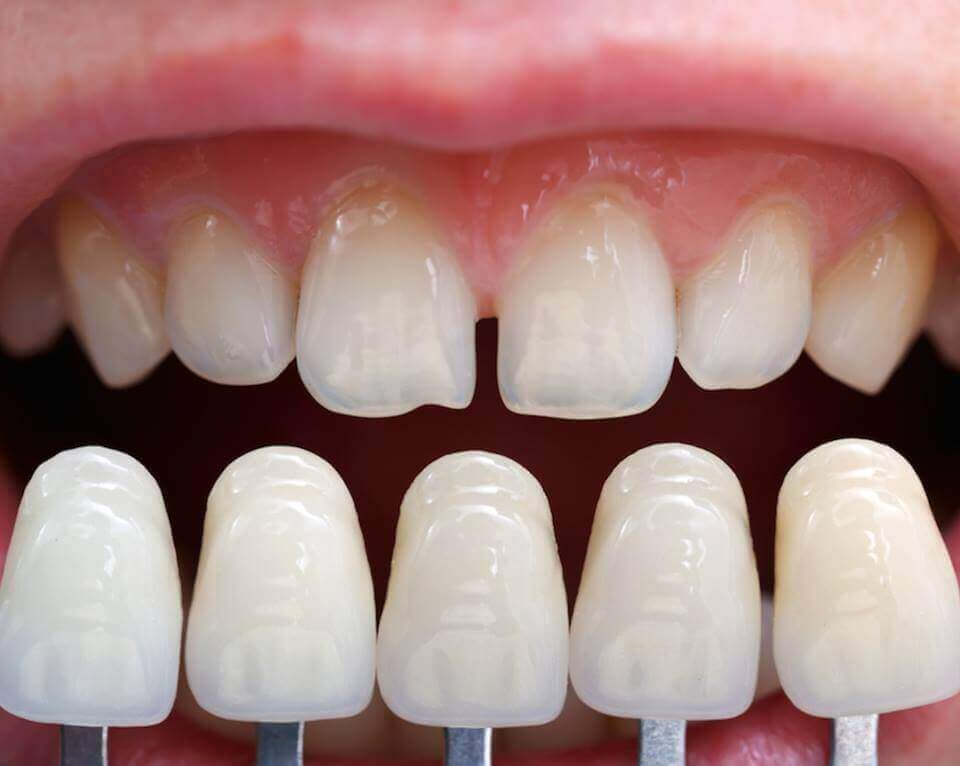
Dental Implants – Beginning of a New Era in Cosmetics Dentistry
What is a Dental Implant? A dental implant is an artificial tooth "root" placed in your mouth to support a dental prosthesis such as a crown, denture or bridge. It is made from titanium alloy and it fuses around the jawbone serving as a root for the missing tooth. This... Read More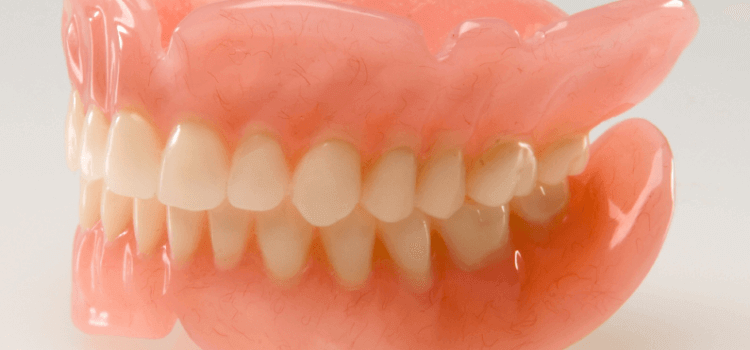
What Are the Advantages of Dental Implants Over Conventional Dentures?
Are missing teeth making you look funny and do you feel weird before smiling? Yes, missing or diseased teeth can impact the way you talk, chew food or smile. It also impairs confidence for some. But thanks to modern healthcare solutions, we are able to aesthetically and functionally improve our... Read MoreShalby Hospital
Dental Cosmetic and Implantology
Center Of Excellence
- Arthroscopy – Sports Injury
- Ophthalmology and Glaucoma
- Oncosurgery
- Oncology
- Obstetrics and Gynaecology
- Obesity Surgery
- Neuro Science
- Neurosurgery
- Nephrology
- Orthopedic and Trauma
- Paediatric Orthopedics
- Spine Surgery
- Rheumatology
- Radiology and Imaging
- Pulmonology and Chest
- Plastic Surgery
- Paediatrics and Neonatology
- Pathology And Microbiology
- Maxillofacial Surgery
- Knee Joint Replacement
- ENT Surgery
- Endoscopy and Laparoscopy
- Endocrinology – Diabetology
- Emergency Medicine
- Dental Cosmetic and Implantology
- Cosmetic and Aesthetic
- Cardiothoracic and Vascular Surgery
- Cardiology
- Gastrointestinal Surgery
- Gastroenterology
- Intensive and Critical Care
- Infertility and IVF
- Infectious Diseases
- Hip Joint Replacement
- Liver Transplant
- Hair Transplant
- General Surgery
- General Medicine
- Uro Surgery
- Dermatology
- Arthroplasty
- Psychiatry
- Urology
- Anesthesia












